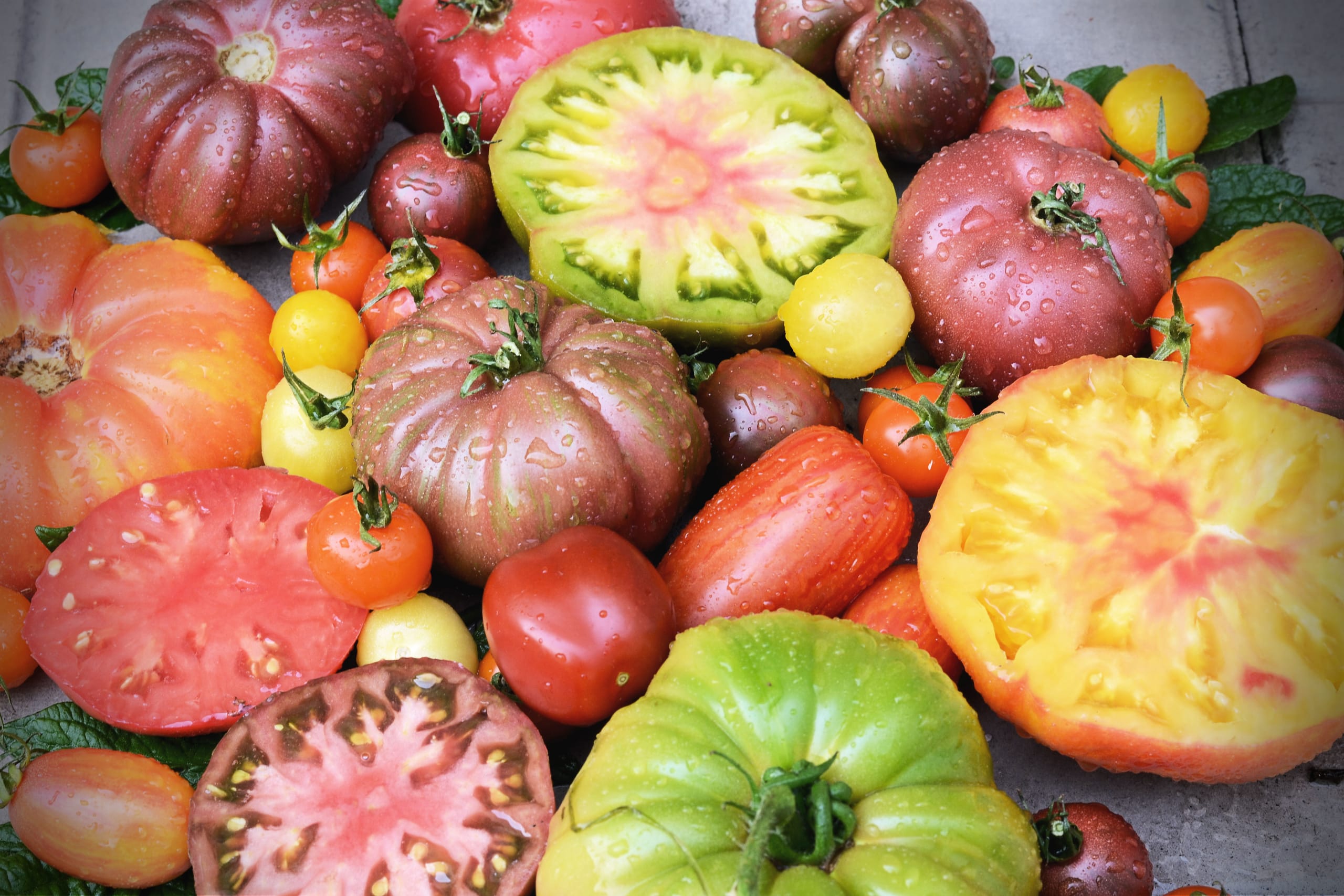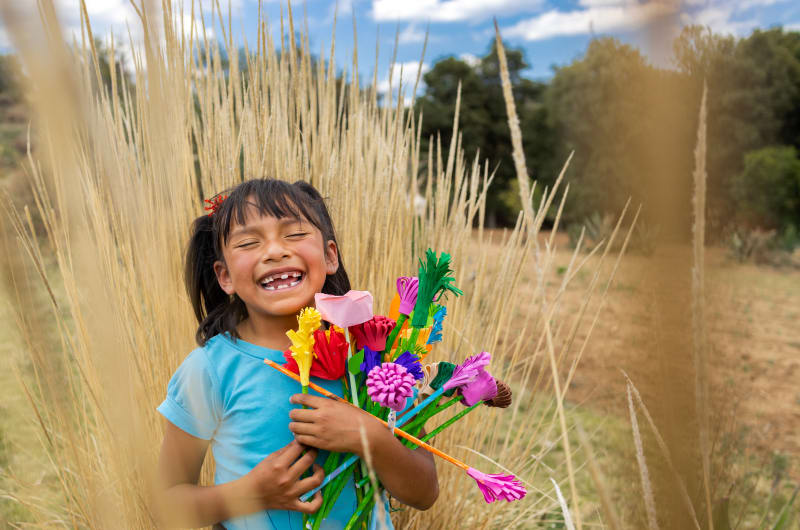What’s as small a crumb but can fill many plates?
A seed, of course! Seeds are miraculous things. In backyard and community gardens across Canada, one little seed can produce up to 40 zucchinis over a summer. One cherry tomato transplant can have you picking bowls of colourful produce from July to September.
Food gardens are a hobby for nearly 50 per cent of Canadian households—a number that is growing, especially among Millennials and Gen Z population. This summer, gardening is expected to reach the highest level of engagement in over 10 years.
It’s a hobby that is quite literally growing.
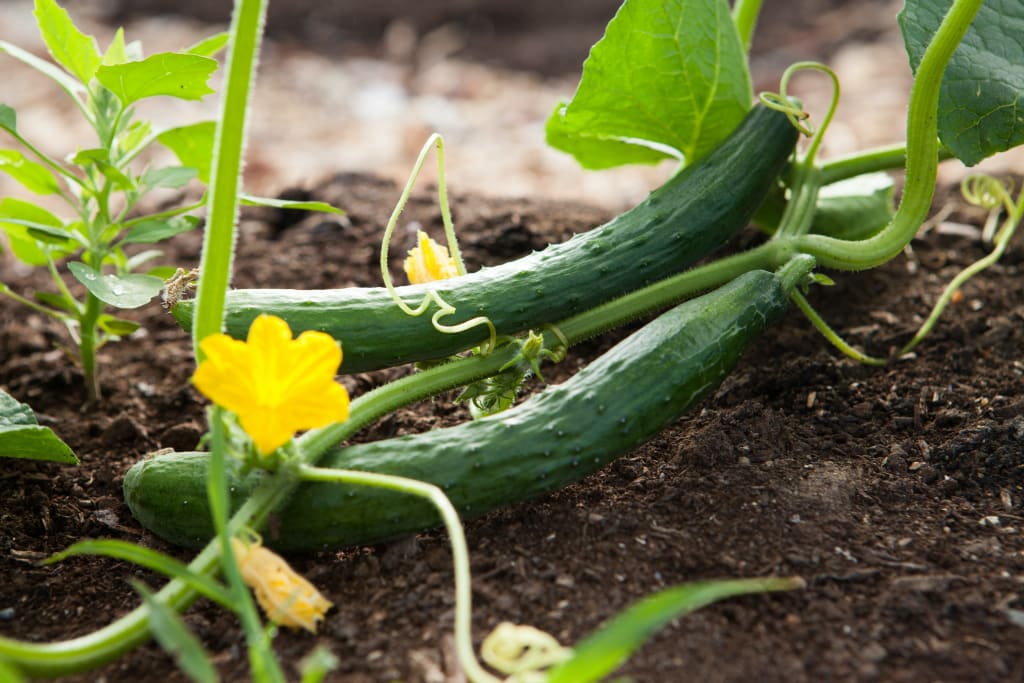
According to Dalhousie University Agri-Food research in 2022, higher food prices and decreased quality of produce at the grocery store have driven Canadians to seek a change in the way they access food. Today, more Canadians than ever are seeking out farmer’s markets and roadside stands for their produce, and last summer, 15.5 per cent of Canadians started to grow at least one fruit or vegetable for the first time.
When Canadians were asked why they began growing food:
- 41 per cent wanted to save money on food
- 49 per cent believed they could grow better quality than what they find at the grocery store
- 74 per cent thought it would be fun to try
But these are just the beginning of the benefits of growing food. Trying new flavours, physical exercise, mental relaxation, satisfaction and security are also frequently mentioned. Families with children state they garden for the increased nutrition of freshly picked veggies and to encourage children to try new foods. Studies around the world show that simply being around green plants can reduce stress, fear, anger and release muscle tension.
That’s a lot of benefits, even before the tomatoes turn ripe!
Pst! To learn more about how Compassion is supporting communities in creating long-term sustainable food solutions through backyard gardening check out some amazing resilience stories here.
How about you? Have you got something growing this year?
Employees at Compassion Canada are among those rolling up their sleeves this spring. Along with the practical benefits, they also find it a great opportunity to reflect on what the ability to grow food close to home means for people around the world. Part of Compassion Canada’s response to the global food crisis is to equip more families experiencing poverty around the globe to start backyard gardens.
Meet 5 staff at Compassion Canada who are sharing their top tips for your gardening journey and what growing food means to them!
Aveleen Schinkel: Senior Video Producer & Editor
The “Grow my Groceries” Challenge Gardener
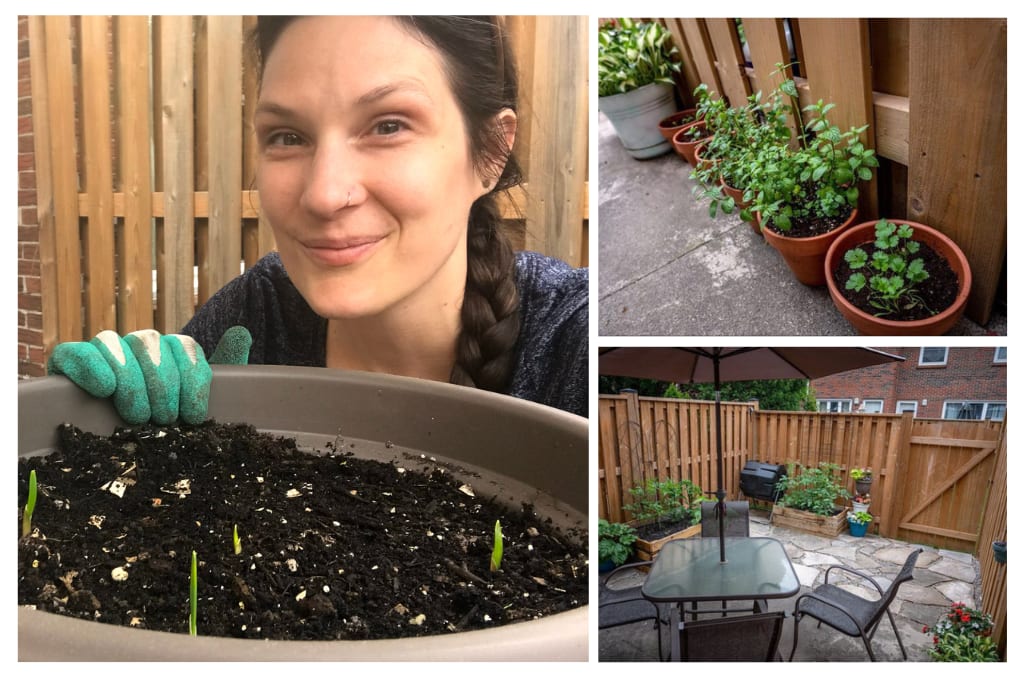
Q: What are your best tips for new gardeners?
I want people to know you don’t need to move to the country or have a huge yard to start growing your own food! I don’t even have a yard — just a small patio with two garden boxes and several planters. It’s incredible what can be grown in smaller spaces.
Between the bright sun on my patio and the rich soil from my composter, tomatoes grow incredibly fast and produce far more fruit than I’d have thought possible! I literally pick buckets of them all summer long. Every year I learn something to apply the next year. Education and support from fellow gardeners are of incredible value to me. Almost everything I’ve learned about horticulture I’ve learned by asking other gardeners!
As food insecurity continues to spread around the globe, I’ve decided to challenge myself to see how much produce I can grow rather than purchase. That goal has changed how I planned for this spring. Instead of just growing the fun stuff that’s great for snacking, I’m branching out to a variety of staples for cooking and preserving as well.
Q: What do you love about backyard gardens funded by Compassion?
I love that Compassion helps families experiencing food insecurity to learn to grow food. A person experiencing poverty often must rely on cheap foods that are filling but don’t offer enough nutrients. But when a family enjoys produce from their own backyard, they’re winning against hunger, malnutrition and even future illnesses!
A backyard farm also gives a family dignity as they become self-sufficient and earn an income. And it can impact the community, too: more food at the market, more income earned and spent locally and even possible job opportunities. It’s a gift that really does keep giving!
Krista Dodson: Graphics Designer
The “Hobby Farmer” Gardener
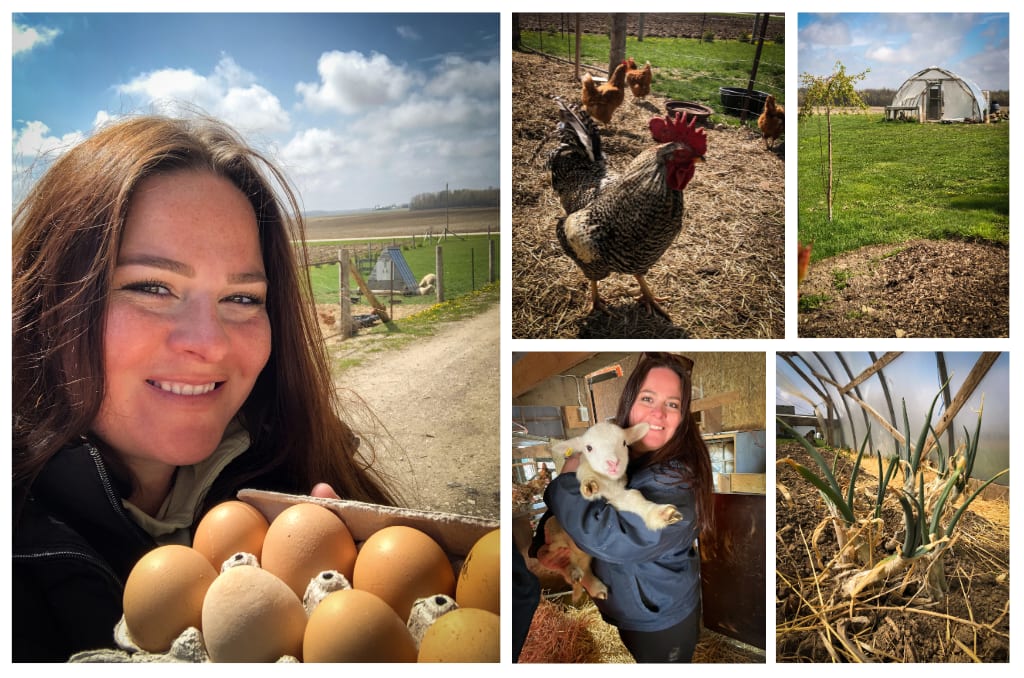
Q: What do you love to grow in your garden?
I’m just starting out with backyard gardening and very new to this. For the summer, I’m looking to grow some of our family’s staples. Things like peppers, tomatoes, beans and lettuce. I’m also looking at starting an orchard this spring and planting different varieties of apple trees. Our family bought a property this year with lots of garden space, a barn, a small greenhouse and most of the tools I needed to get started.
Q: What tips do you have for new gardeners?
Something I’m learning is to start small and watch a lot of YouTube videos. With anything else, trial and error is bound to happen. But the more you can educate yourself and surround yourself with people who have a wealth of knowledge, the easier it will be.
Q: What do you love about backyard gardens funded by Compassion?
I get excited that Compassion equips families to build sustainable sources of nutritious foods because it empowers the individual. I can’t even explain the feeling I had when I collected my first eggs—there is such a sense of pride for the items you grow yourself. In something like gardening, community is everything. I love that I have friends and neighbours I can contact and ask questions of at any time. Without this kind of community support, I might not have started because it would seem very overwhelming. So, I love that Compassion provides community for people learning to grow food or raise animals and the support they need to succeed.
Ruth Macfarlane: Director of Technology and Operations
The “Tool Nerd” Gardener
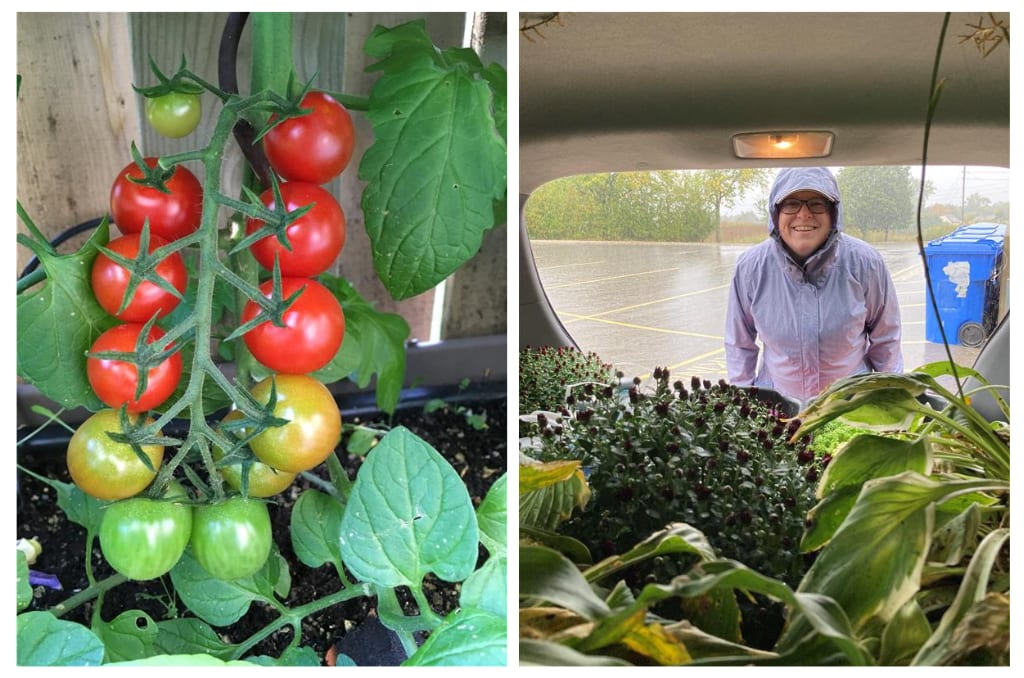
Q: What do you love to grow in your garden?
I love growing tomatoes the most, and at this stage, that’s about all I grow. There is just something quintessentially “summer” to me about eating a tomato straight out of the garden on a hot sunny day. I have grown a few beefsteak tomato plants in the past, but I found that I would have many tomatoes ripen all at the same time. So, these days, I stick to cherry or grape tomatoes mostly.
Q: What are some tips you can share with new gardeners?
I’ve learned it’s best to start small—you can even start with one pot! All of my veggies until this past year have only ever been in pots I grew on a condo townhouse back deck. I tend to buy plants instead of seeds from a local nursery. If you do the same, take a minute to talk to the staff and let them know you’re a beginner. They’ll help you find what works for your area, your situation and your skill level.
Especially at the beginning of my gardening adventure, signing up for a newsletter at my local nursery and visiting a few trusted websites really helped me to learn to keep things alive. It helped me know what to do about typical problems, how to maintain my plants and how to gain confidence in being able to grow things.
I’m also a gardening tool nerd. I love having the right tool for the job. Having the right tools ensures I’m not going to work harder than I have to. Having the right tools also helps to ensure that I don’t hurt myself.
Q: Tell us about what you love about backyard gardens funded by Compassion?
I love that Compassion helps families living in poverty to build sustainable sources of nutritious food and take a step out of poverty. Being able to provide for yourself is one tried and true way of addressing a complex problem. It goes beyond helping people who are hungry feel full—nutrition impacts the development of our brains as infants, our ability to learn in school and the ability to have the energy to work. My ability to do what I do today has and continues to be impacted by my access to nutritious food!
Elaine Toonders: Operations and Administrative Team Manager for Partner Relations
The “No-Waste” Gardener
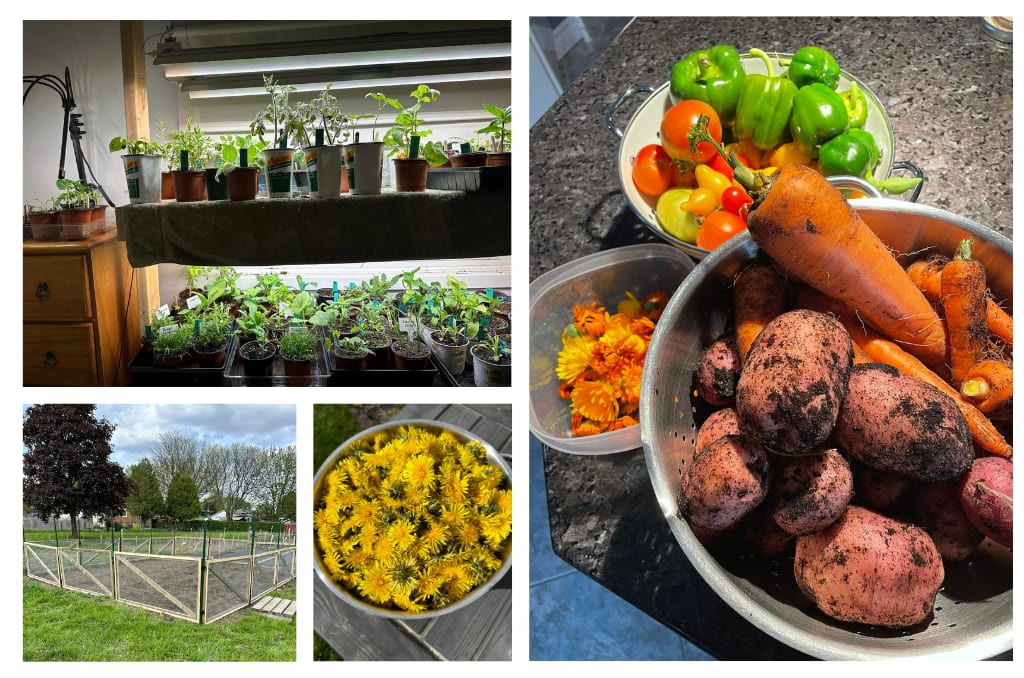
Q: What are your favourite things to grow in your garden?
I grow a lot of herbs and flowers to use in natural beauty and health products. On the food side, I enjoy growing root vegetables such as carrots, beets and parsnips. There is nothing more satisfying than pulling up a carrot, rinsing off the dirt and biting into it. Oh, the crunch!
Q: What are some helpful tips you can share with new gardeners?
My tips for someone just starting out would be to plant double the number of seeds you think you need to account for some not germinating or surviving transplanting to a new spot. Grow vegetables suitable for your growing season and soil, and grow what your family will actually eat. Others have really helped me to enjoy the process of growing and not to be afraid to try something new. They’ve encouraged me to share an abundant garden with others by giving to food banks, hospitality kitchens, neighbours and others who might not grow their own food.
Q: What are some challenges you’ve faced when growing food? How did you overcome them?
My biggest challenge have been learning the timing for starting seeds indoors. The package instructions are just guidelines, and I learn from experience every year. A little education can prevent a lot of waste, and I think that’s a critical component of gardening. Setting up transplant and seed swaps with others can be not only helpful but fun! We’ve even had seed swaps in our Compassion office! When communities support one another by sharing the workload and fresh produce, it creates a healthy community in countless ways that reach far beyond the chore of gardening.
Q: Can you share a bit about why Compassion’s backyard garden projects are so important?
What I love about Compassion’s backyard farm initiatives is that we’re not just equipping people to feed their own families, but they also gain the skill of gardening, which they can pass down to their children. It provides self-reliance and dignity to care for their loved ones and helps people to regain traditional skills that may have been lost or introduce more sustainable practices.
Lindy Brown: Content Specialist
The “Try Something New” Gardener
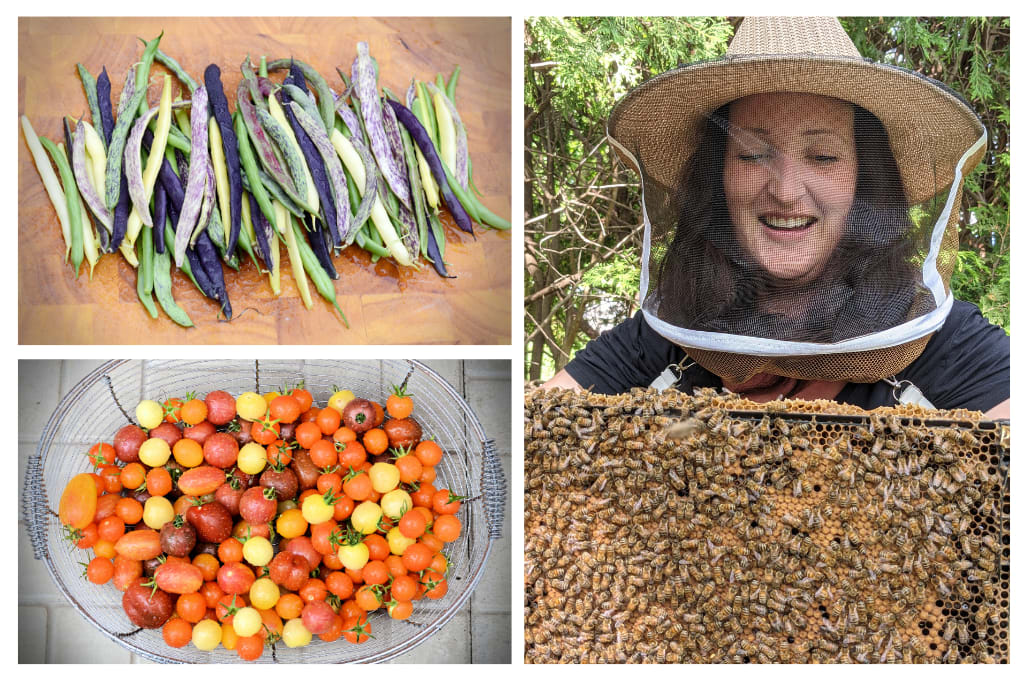
Q: What do you love to grow in your garden?
I started growing my first vegetables on my 8th-floor apartment balcony nearly 20 years ago. My first lesson was that cucumbers need pollination and bees didn’t like heights. Eventually, we learned to hand pollinate and prune, to tie unwieldy tomatoes on trellises, and not to fertilize the herbs. I’ve grown something in whatever space we had ever since. These days, I start my tomatoes and peppers and many herbs from seed. Beekeeping friends of mine have helped me appreciate pollinators in a new way, so I consider the needs of local bees in my garden plans. My family isn’t that large, so I end up preserving by canning, drying and fermenting things like hot sauce.
Q: What do you love most about being able to grow your own food?
I wouldn’t say that our gardens have made a significant change in our grocery bills, but they allow us to eat a far greater variety of higher-quality vegetables. I also love having veggies to share in my community. Learning to garden has helped me to be more patient and pay attention to little things, but it also has been a reminder that hope takes real effort. We entrust seeds to the soil, and then we get to work.
Q: What are some tips you can share with new gardeners?
My best tips for starting or expanding a garden this summer is to grow what you love to eat but also try something new to you. You might discover — like I did — a love for fresh radishes or fennel. Consider growing a row for your local food bank if you aren’t sure you can eat all the produce yourself, and definitely don’t skip growing greens— they are easy and rewarding!
Q: Why do you love backyard gardens funded by Compassion?
I love that many of our church partners around the world are teaching backyard gardening skills to people experiencing food insecurity. There is nothing like trying something new and finding success because of a supportive community, and that is a kind of victory against the helplessness and lack of choices that often accompanies economic disadvantage. The confidence gained in getting even one plant to grow can lead to confidence and personal flourishing in other areas of life too!
Whether we garden for relaxation, for fun, for connection with others or for the thrill of those first vegetables, these Compassion Canada staff all agree that getting in touch with the rhythms of creation is good for our soul. Putting the labour in to bring good food to our tables makes us appreciate the efforts to bring nutritious food to our friends around the world.

